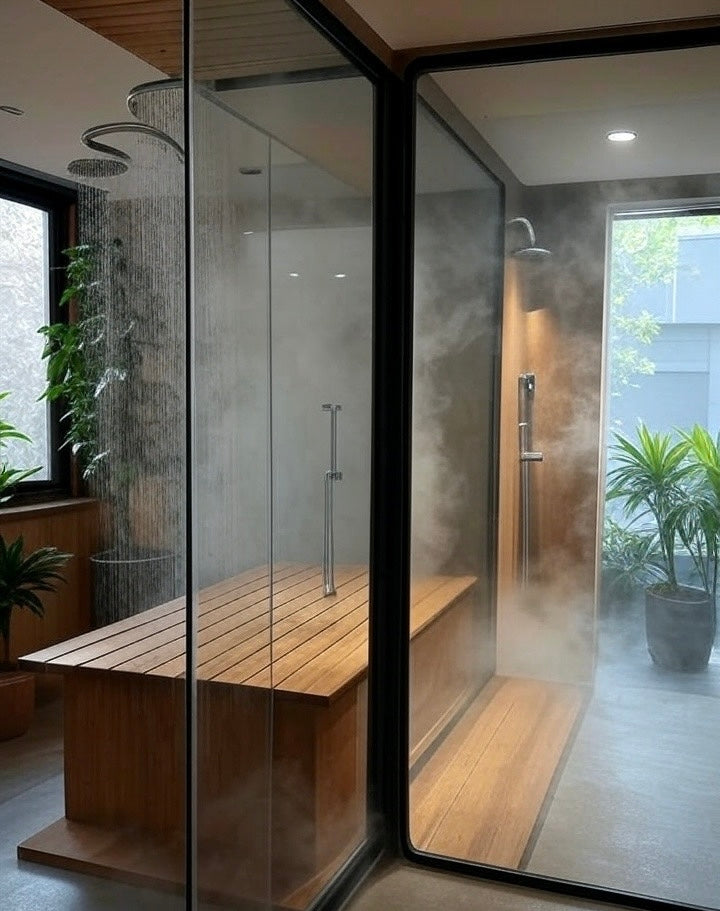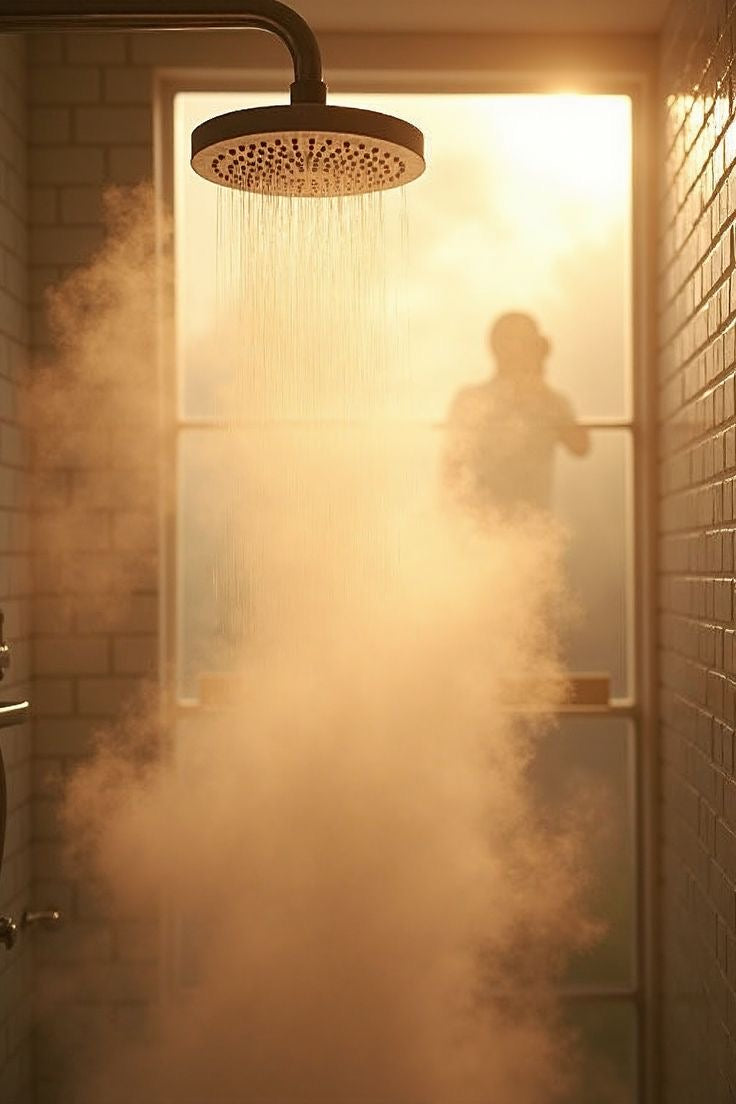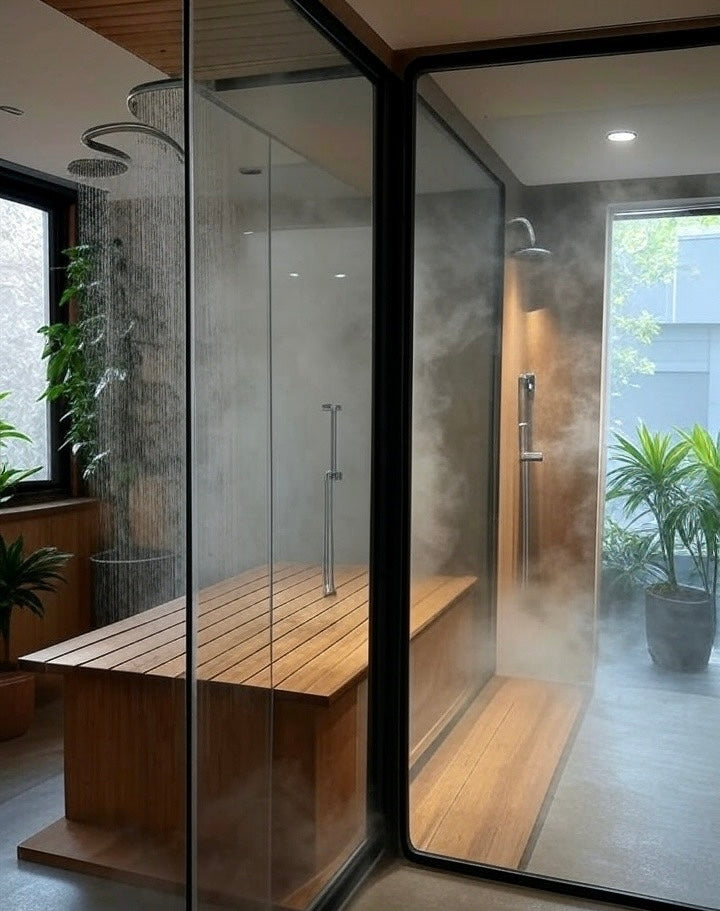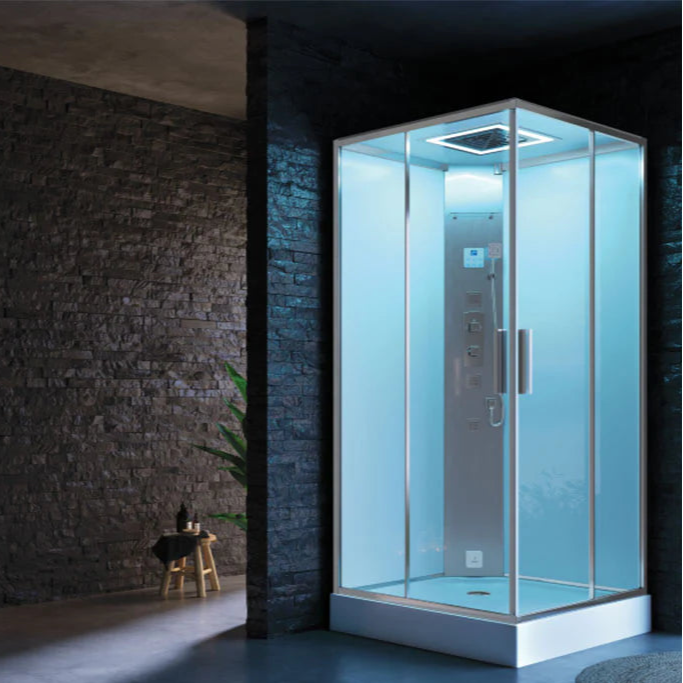Ever wondered if your relaxing steam bath or steam room session could land you with pneumonia? Short answer: probably not—but it’s not impossible. Before you ditch your steamy escape, stick around to find out who’s at risk, what to watch for, and how to keep steaming safely!

Pure Steam vs. Contaminated Mist: Understanding the Difference
Not all steam is created equal. In a clean environment, steam showers simply produce water vapour. This is usually harmless to healthy lungs.
However, if the vapour carries bacteria or chemical byproducts, there may be health concerns. Cleanliness and water quality make all the difference.
How Lungs Handle Water Vapour
Our lungs are generally well-equipped to handle moist air. In fact, steam inhalation can ease mild congestion or sinus discomfort.
That said, steam doesn’t sterilise the air. If the mist is carrying contaminants, those can still be drawn deep into the lungs.
The Role of Water Quality in Shower Steam
The water quality behind your steam is crucial. Hard water with high mineral content can carry irritants.
Old or poorly maintained systems may also release harmful particles or bacteria.
That’s why the risk increases in systems that haven’t been cleaned or used regularly.
The Real Risks: When Shower Vapours Can Impact Respiratory Health
When shower vapour is contaminated, there’s a potential risk. The warm, moist air can carry bacteria, mould spores, and chemicals.
These can irritate the lungs or, in some cases, lead to more serious problems like pneumonia.
Legionnaires' Disease: The Primary Concern with Water Systems
This is one of the more well-known risks from unclean water systems.
What is Legionella Bacteria?
Legionella is a naturally occurring bacteria. It grows in warm, stagnant water, especially between 20°C and 50°C.
Left unchecked, it can spread through household plumbing or public water systems.
How Legionella Spreads Through Water Aerosols (Showers, Hot Tubs, etc.)
The danger comes from breathing in tiny water droplets containing Legionella. Showers, steam rooms, hot tubs, and even decorative fountains can become sources if infected.
The bacteria isn’t spread by drinking water—only through inhaled mist.
Symptoms and Risk Factors for Legionnaires' Pneumonia
Legionnaires’ disease causes symptoms like high fever, cough, chest pain, and shortness of breath. It’s a serious form of pneumonia.
People with weakened immune systems, older adults, and smokers are most at risk. Prompt medical treatment is essential.
Beyond Legionella: Other Potential Respiratory Irritants in Shower Steam
Legionella isn’t the only concern in the mist.
Chlorine, Chloramines, and Disinfection Byproducts (THMs)
Chemicals used to disinfect water can create harmful byproducts. When heated, chlorine and chloramines release THMs (trihalomethanes).
These may irritate the lungs, especially for people with respiratory conditions.
Volatile Organic Compounds (VOCs) from Products and Plumbing
Shower gels, shampoos, and plastic piping can emit VOCs. These volatile compounds are released more rapidly with heat and steam.
Prolonged exposure could worsen asthma or trigger other sensitivities.
Mineral Dust and Microorganisms from Unclean Systems
Minerals and grime build up inside showerheads or plumbing. If left to sit, this can become a breeding ground for bacteria.
When disturbed by steam, they can be released into the air as fine particles, affecting respiratory health.
Safe Steaming: Best Practices for a Healthy Shower Environment
Steam baths can be safe and soothing—if you take the right precautions.
Dispelling Myths: Can Shower Steam Actually Help Respiratory Issues?
Steam isn’t all bad news. It’s often used to relieve congestion and ease breathing.
Temporary Relief for Congestion and Irritation
Warm vapour can help loosen mucus. It may also open up nasal passages for temporary comfort during colds or allergies.
This is why steam is commonly used as a home remedy for stuffy noses.
When Steam Inhalation is NOT Recommended (e.g., Asthma Flare-ups, Burns)
Some people should avoid steam. Those with asthma or chronic lung disease may find that it worsens symptoms.
Also, steaming too close to your face or using boiling water can cause burns. Always use caution with any steam therapy.
Ensuring a Healthy Shower: Practical Tips for Prevention

Here’s how to keep your steaming sessions safe and enjoyable.
Maintaining Water Heater Temperature (for Legionella control)
Keep your water heater at 60°C or higher. Temperatures below this allow Legionella bacteria to grow.
Hotter water helps kill bacteria before it enters your steam or shower.
Cleaning Showerheads and Fixtures Regularly
Monthly cleaning of your showerhead is a smart habit. Remove mineral build-up and disinfect regularly to prevent bacteria growth.
This simple step helps protect your respiratory health.
Improving Bathroom Ventilation
Good airflow stops moisture from building up. This helps prevent mould, mildew, and bacterial growth.
Use an extractor fan or open windows during and after showers to let humidity escape.
Considering Shower Filters for Water Contaminants
A high-quality shower filter can reduce chlorine and other chemicals. Some also remove heavy metals and VOCs.
This can benefit both your skin and your lungs.
Using Distilled Water in Other Humidifying Devices (Applicable Principle)
For steamers and humidifiers, use distilled water to avoid mineral deposits and bacterial contamination. While not always practical in showers, the concept reminds us to keep water clean at its source.
Takeaways
-
Steam showers don’t usually cause pneumonia, but the risk rises with poor maintenance.
-
Legionella bacteria is the most serious threat from contaminated vapour.
-
Chemicals, VOCs, and minerals may also affect your lungs over time.
-
Clean systems, good ventilation, and awareness keep your steam sessions safe.






